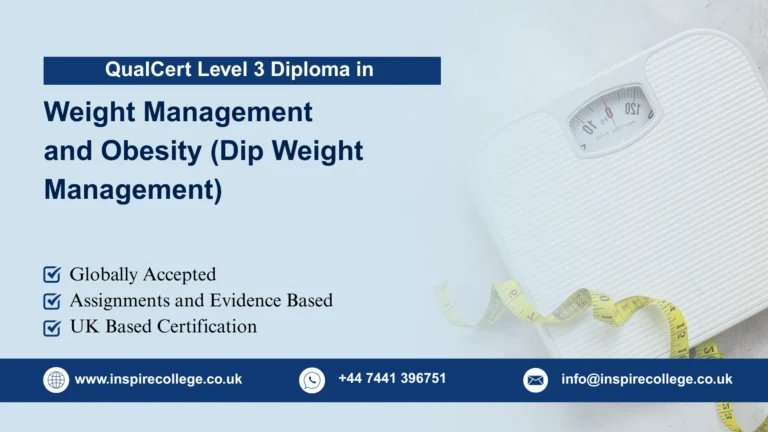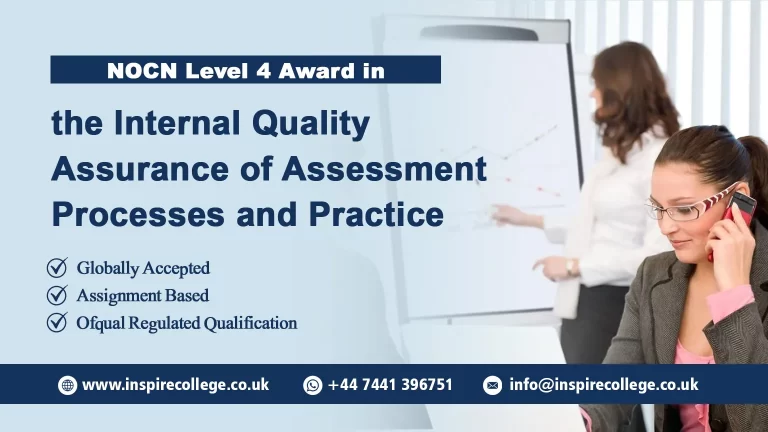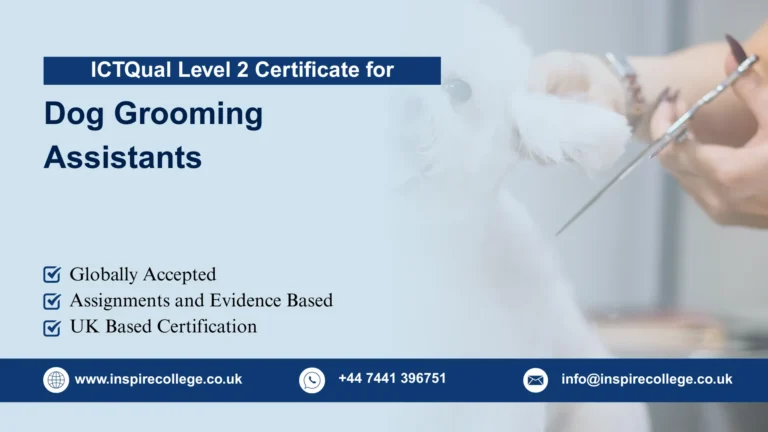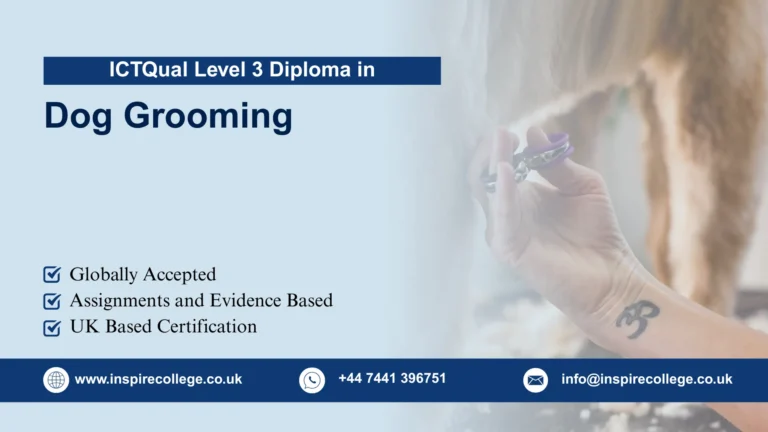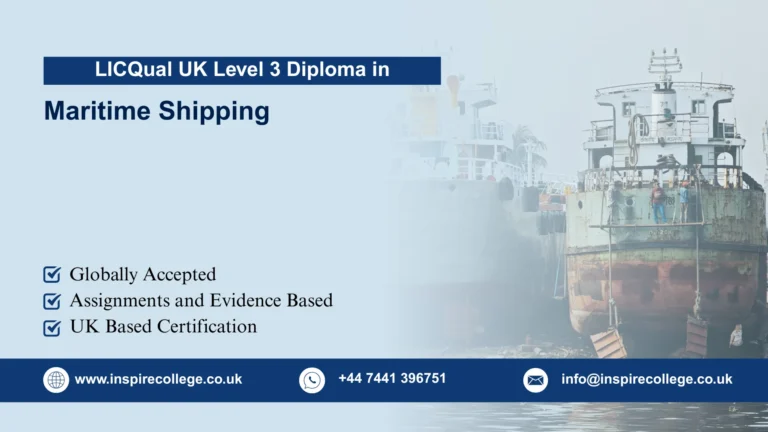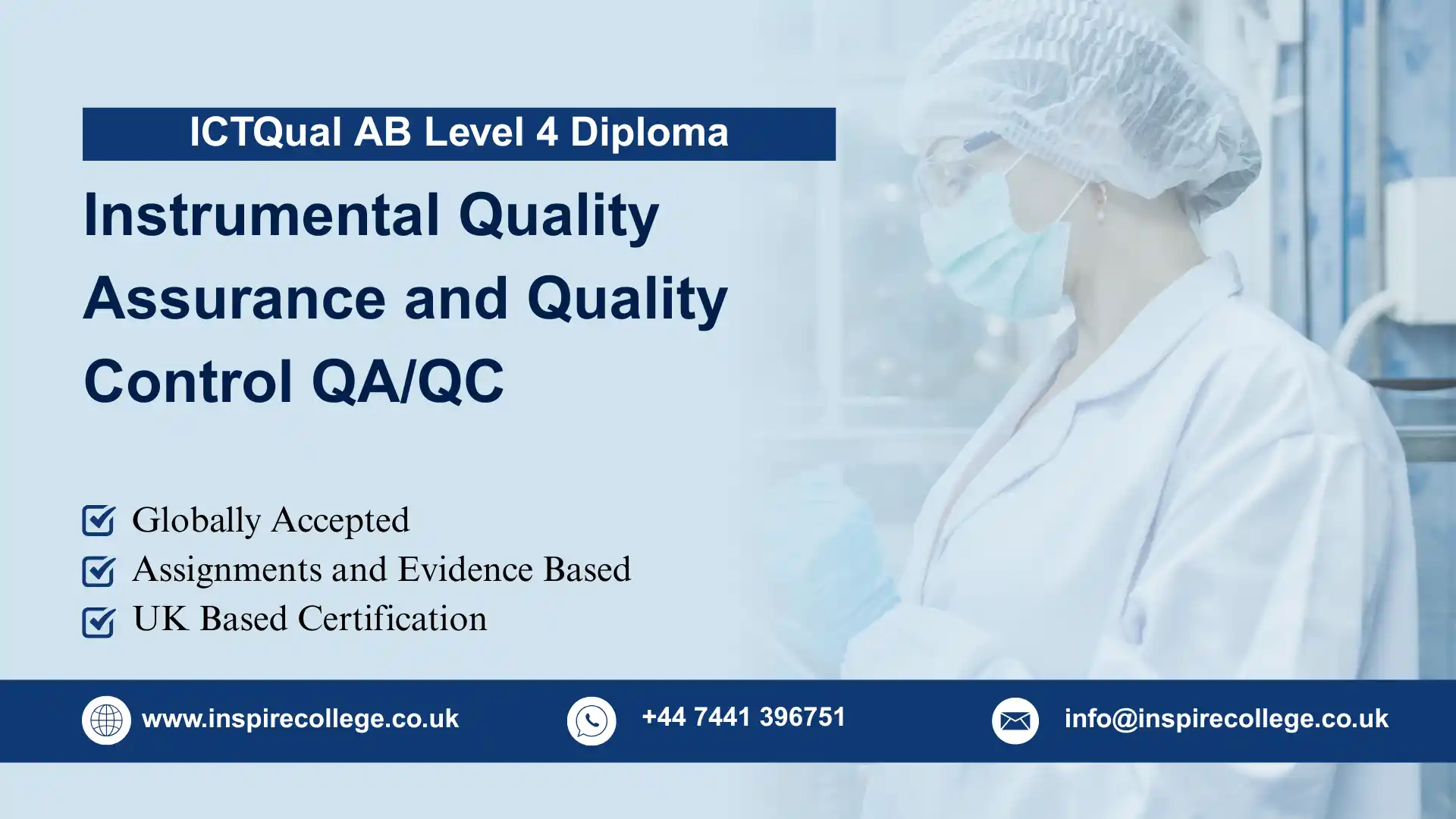
ICTQual AB Level 4 Diploma in Instrumental Quality Assurance and Quality Control QA/QC
The ICTQual AB Level 4 Diploma in Instrumental Quality Assurance and Quality Control (QA/QC) is designed for learners who want to strengthen their expertise in industrial inspection, compliance, and quality management. Building on the foundations of Level 3, this diploma takes a deeper dive into advanced QA/QC practices, preparing learners for more responsible roles in industries where precision and safety are non-negotiable.
Through this Level 4 Diploma in Instrumental QA/QC, learners gain practical knowledge of inspection methods, calibration techniques, and compliance with international standards. The program emphasizes advanced documentation, reporting, and the use of modern instrumentation tools to ensure accuracy and efficiency in industrial operations. By focusing on both theory and hands-on training, the ICTQual AB QA/QC Diploma Level 4 equips learners with the confidence to handle complex inspection tasks and contribute to operational excellence.
Industries such as oil and gas, power generation, construction, and manufacturing rely heavily on skilled QA/QC professionals to maintain safety, reliability, and compliance. With this Instrumental Quality Assurance and Quality Control Diploma Level 4, learners develop the ability to manage inspection teams, oversee quality processes, and ensure adherence to global standards.
Completing the ICTQual AB Level 4 Diploma in Instrumental Quality Assurance and Quality Control QA/QC positions learners as industry-ready professionals with advanced skills in inspection, compliance, and quality control. Whether you are looking to advance your career, secure international opportunities, or move into supervisory roles, this qualification provides the pathway to long-term success in the field of industrial QA/QC instrumentation.
To enroll in the ICTQual AB Level 4 Diploma in Instrumental Quality Assurance and Quality Control QA/QC, learners are expected to meet the following entry requirements. These criteria ensure participants are prepared for advanced study and can successfully apply the knowledge and skills gained throughout the program:
Age Requirements
- Applicants should be 18 years or older at the time of enrollment.
- This ensures maturity and readiness for advanced vocational and professional training.
Educational Requirements
- A Level 3 qualification (or equivalent) in QA/QC, instrumentation, engineering, or a related technical field is recommended.
- Candidates with a strong foundation in science, mathematics, or engineering principles will find the program especially accessible.
- In some cases, learners without formal academic qualifications may be accepted if they demonstrate relevant industry experience or vocational training.
Professional Experience
- Prior work experience in industrial instrumentation, inspection, or quality control is beneficial but not always mandatory.
- The diploma is particularly suited for technicians, inspectors, or professionals seeking to advance into supervisory or mid-level QA/QC roles.
- Employers often sponsor staff for this program to upskill their workforce in compliance, inspection, and quality assurance.
English Language Proficiency
- Since the program is delivered in English, learners should demonstrate proficiency in reading, writing, and technical communication.
- A minimum of intermediate English level is recommended to understand technical manuals, safety protocols, and industry documentation.
- International learners may be required to provide proof of English language ability.
Meeting these entry requirements ensures that learners are fully prepared to succeed in the ICTQual AB Level 4 Diploma in Instrumental Quality Assurance and Quality Control QA/QC, positioning themselves for advanced roles in inspection, compliance, and industrial quality management.
Mandatory Units
This qualification, the ICTQual AB Level 4 Diploma in Instrumental Quality Assurance and Quality Control QA/QC, consists of 6 mandatory units.
- Developing and Applying ITPs in Instrumentation Projects
- Inspection Checklists and Documentation for Compliance
- Material Receiving, Handling, and Preservation Procedures
- Application of NEC‑250 Grounding and NEMA VE‑1/VE‑2 Cable Tray Standards
- Installation Practices for Conduits (RMS, FMT, RGS, IMT – NEC Articles 344–400)
- Intermediate Loop Checking, Testing, and Commissioning Techniques
Learning Outcomes for the ICTQual AB Level 4 Diploma in Instrumental Quality Assurance and Quality Control QA/QC:
1. Developing and Applying ITPs in Instrumentation Projects
- Explain the purpose and structure of Inspection Test Plans (ITPs).
- Develop ITPs tailored to instrumentation projects.
- Identify inspection stages and assign responsibilities within an ITP.
- Apply ITPs to monitor compliance with project specifications.
- Integrate ITPs with project schedules and QA/QC documentation.
- Evaluate the effectiveness of ITPs in ensuring quality outcomes.
- Revise and update ITPs based on project changes or non‑conformances.
- Demonstrate the ability to communicate ITP requirements to project teams.
2. Inspection Checklists and Documentation for Compliance
- Design inspection checklists for different stages of instrumentation projects.
- Apply checklists to verify compliance with technical standards.
- Record inspection findings accurately and systematically.
- Identify non‑conformances and document corrective actions.
- Maintain traceability of inspection records for audits.
- Use checklists to support quality assurance and risk management.
- Ensure documentation meets international QA/QC requirements.
- Demonstrate effective reporting and communication of inspection results.
3. Material Receiving, Handling, and Preservation Procedures
- Inspect incoming materials against purchase orders and specifications.
- Verify material certificates and compliance documentation.
- Apply correct procedures for safe receiving and handling of materials.
- Implement preservation methods to protect sensitive instrumentation equipment.
- Identify and report non‑conforming materials.
- Maintain traceability of materials throughout the project lifecycle.
- Ensure compliance with international best practices for storage and preservation.
- Document material inspections and preservation activities accurately.
4. Application of NEC 250 Grounding and NEMA VE 1/VE 2 Cable Tray Standards
- Interpret NEC 250 grounding requirements for instrumentation systems.
- Apply NEMA VE‑1/VE‑2 standards for cable tray design and installation.
- Inspect grounding systems for compliance with safety standards.
- Verify cable tray installations against NEMA specifications.
- Identify common grounding and cable tray installation faults.
- Document inspections in line with NEC and NEMA requirements.
- Ensure installations meet safety, reliability, and compliance standards.
- Communicate findings and corrective actions effectively.
5. Installation Practices for Conduits (RMS, FMT, RGS, IMT – NEC Articles 344–400)
- Interpret NEC Articles 344–400 for conduit installations.
- Select appropriate conduit types (RMS, FMT, RGS, IMT) for specific applications.
- Inspect conduit installations for compliance with NEC standards.
- Identify and correct common conduit installation issues.
- Apply QA/QC procedures to conduit routing and support systems.
- Document inspections and ensure traceability of conduit work.
- Ensure conduit installations meet safety and operational requirements.
- Demonstrate compliance with international best practices.
6. Intermediate Loop Checking, Testing, and Commissioning Techniques
- Explain the purpose of loop checking in instrumentation systems.
- Perform loop checks to verify continuity and functionality.
- Document loop check results in accordance with QA/QC requirements.
- Conduct intermediate testing procedures for instrumentation systems.
- Apply commissioning techniques to ensure system readiness.
- Identify and resolve issues during loop checking and commissioning.
- Ensure compliance with international standards during commissioning.
- Contribute to safe and effective handover of commissioned systems.
The ICTQual AB Level 4 Diploma in Instrumental Quality Assurance and Quality Control (QA/QC) is designed for learners who want to advance their skills in inspection, compliance, and quality management. This program builds on foundational QA/QC knowledge and provides deeper training in industrial instrumentation, calibration, and international standards. It is ideal for professionals aiming to move into supervisory roles or secure global career opportunities in oil, gas, power, and manufacturing industries.
1. Aspiring QA/QC Professionals
- Individuals aiming to build a career in instrumental quality assurance and quality control.
- Learners who want to progress beyond entry-level QA/QC roles.
- Students seeking a recognized ICTQual AB Level 4 Diploma in Instrumental QA/QC.
- Those motivated to gain practical inspection and compliance skills.
- People preparing for global career opportunities in QA/QC.
2. Engineering and Technical Graduates
- Graduates in engineering, instrumentation, or technical fields.
- Learners who want to specialize in industrial QA/QC practices.
- Students seeking hands-on training beyond academic theory.
- Individuals preparing for mid-level inspection and compliance roles.
- Graduates aiming to enhance their career prospects in global industries.
3. Working Technicians and Inspectors
- Professionals already employed in oil, gas, power, or manufacturing sectors.
- Technicians seeking to upgrade their qualifications with a Level 4 diploma.
- Workers aiming to strengthen their inspection and documentation expertise.
- Employees preparing for supervisory or team-lead QA/QC positions.
- Those seeking a globally recognized certification for advancement.
4. Career Changers with Technical Aptitude
- Professionals from related fields such as mechanical, electrical, or instrumentation.
- Individuals seeking a career shift into QA/QC inspection and compliance.
- Learners motivated to gain industry-ready skills quickly.
- Career changers aiming for stable, high-demand QA/QC roles.
- Those looking for a recognized qualification to support transition.
5. Employers and Training Managers
- Companies looking to upskill their workforce in QA/QC practices.
- HR managers seeking standardized training for inspection teams.
- Employers aiming to improve safety, compliance, and efficiency.
- Organizations that want staff certified with the ICTQual AB QA/QC Diploma Level 4.
- Training providers offering industry-ready QA/QC programs.
6. International Learners and Global Job Seekers
- Students aiming for internationally recognized ICTQual AB qualifications.
- Professionals relocating to regions where QA/QC skills are in demand.
- Learners seeking global career opportunities in inspection and compliance.
- Individuals who want to stand out in competitive international job markets.
- Those preparing for long-term career stability abroad.
7. Students Seeking Long-Term Career Growth
- Learners who want a future-proof career in QA/QC instrumentation.
- Individuals motivated by job security and global demand for QA/QC specialists.
- Students aiming for higher-paying technical and supervisory roles.
- Those who want to build a foundation for advanced QA/QC or engineering studies.
- Learners seeking a clear pathway to career growth and stability.
Register Now
FAQs for ICTQual AB Level 4 Diploma in Instrumental Quality Assurance and Quality Control QA/QC

